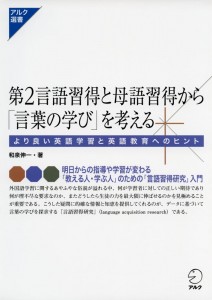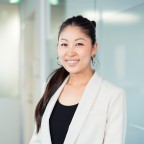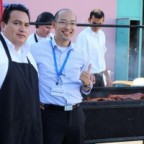(In Part II of our interview with Professor Izumi we discuss how he began his academic career and his vision for the future of English Education in Japan.) (For Part I of the interview, please click here.)
Professor Izumi started to get interested in studying linguistics after his experience teaching at ECC when he was a university student.
His experience at ECC was very exciting, but at the same time, it led him to question his teaching methods: “Is this really the right way? Am I giving good advice to my students? Am I using the time wisely for my students?” Because he could only rely on the rather rigid ways of teaching which he learned at ECC teacher’s training, and his limited experiences, he decided to study more. So, at the age of 26, he started to study linguistics at Southern Illinois University.
After studying there for 2 years, his original plan was to come back to Japan. But as he studied, he realized that he had more questions than answers. When he consulted his professor about his situation, the professor recommended that he continue to study at a higher level. This prompted him to study more, so he studied, researched, and taught as an instructor at Georgetown University for 4.5 more years and finally got his Ph.D.
When deciding what to do after finishing his Ph.D. he thought, “I had a lot of problems with English education in Japan and I think that it can be improved more. That’s got to be my mission, that is, to help change the English education in Japan.” His goal is to continue to research about second language acquisition, keep teaching English, and be engaged in teacher training. It has been 16 years since he started teaching at Sophia University. His feelings towards changing Japan’s English education still remain the same and are as strong as ever.
Angles Editors: You mentioned that you taught at ECC. After researching and studying and even writing some books, how would you change it if you were to teach at ECC right now?
Professor Izumi: I’d like to change it to a CLIL, Content and Language Integrated Learning. It’s really difficult for teachers who are so used to teaching in the traditional grammar-centered ways of teaching, but that’s why I like to be engaged in teacher training. I want to help them make the necessary changes. Ultimately what needs to be changed is teachers. It doesn’t matter if exams change as long as teachers remain the same with their old mindset. In fact, the exams have been changing over the past decades, but the question still remains: have the teachers changed as much? Ultimately if the teachers don’t change, then all other changes will go in vain. But that’s why I think it’s really worthwhile to focus on teachers and teacher training and education.
For teachers looking to learn activities and practical techniques, Professor Izumi recommends his second book the most, but he hopes that teachers consider reading his latest book as well to help change “their fundamental ideas of what language acquisition is.”
Finally, he went on to say, “I want teachers to come up with their own ideas based on the fundamental ideas. Maybe they have much better ideas than I do. And if teachers come up with their own ideas, that’s when real changes happen. What I am doing here is just initiating the process. We all have to pool our brains and resources as much as we can to create a truly exciting future.”
To learn more about Professor Izumi’s ides please read his new book, Thinking about Language Learning from the Perspectives of First and Second Language Acquisition Research. (『第2言語習得と母語習得から「言葉の学び」を考える』 アルク選書、2016)



















